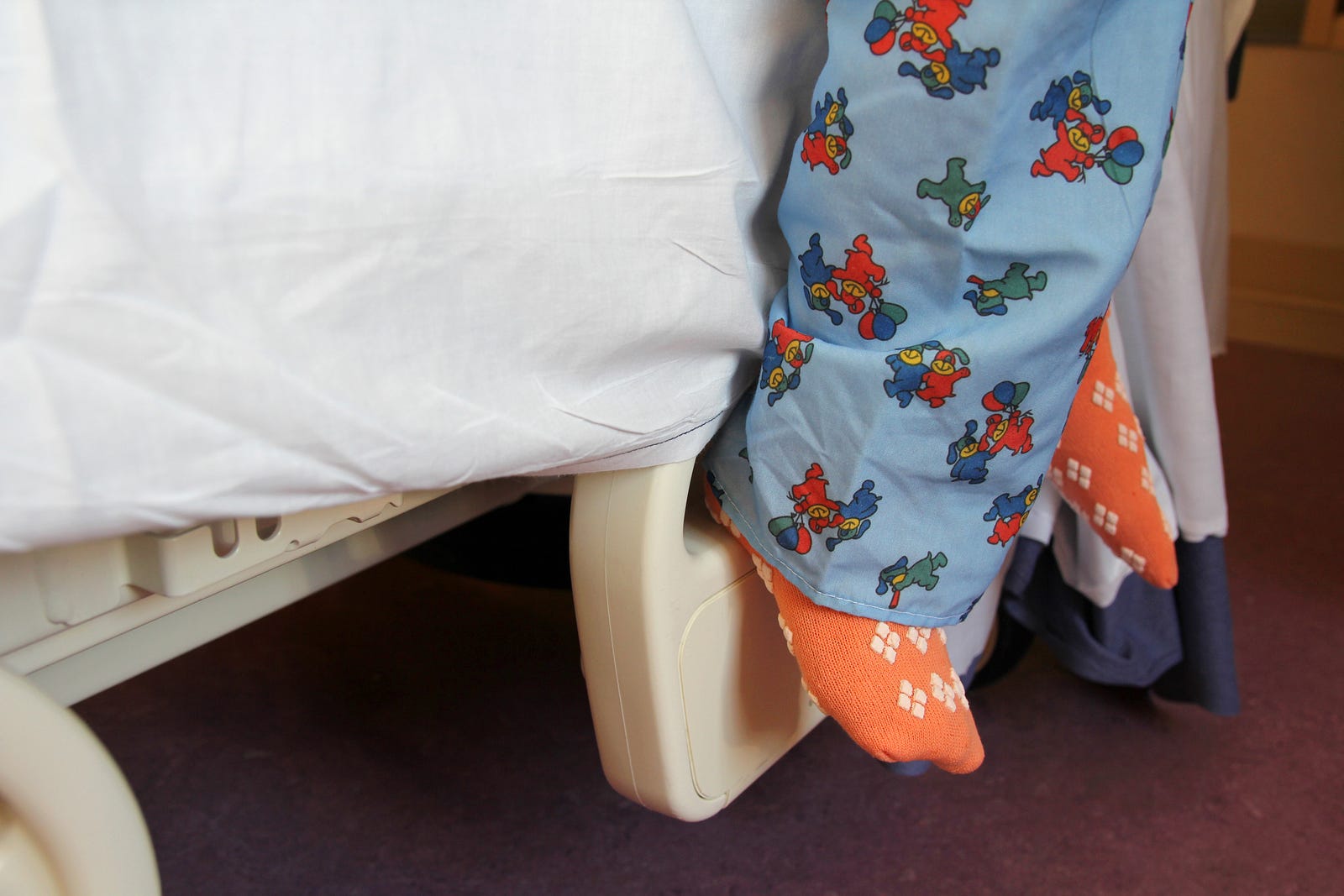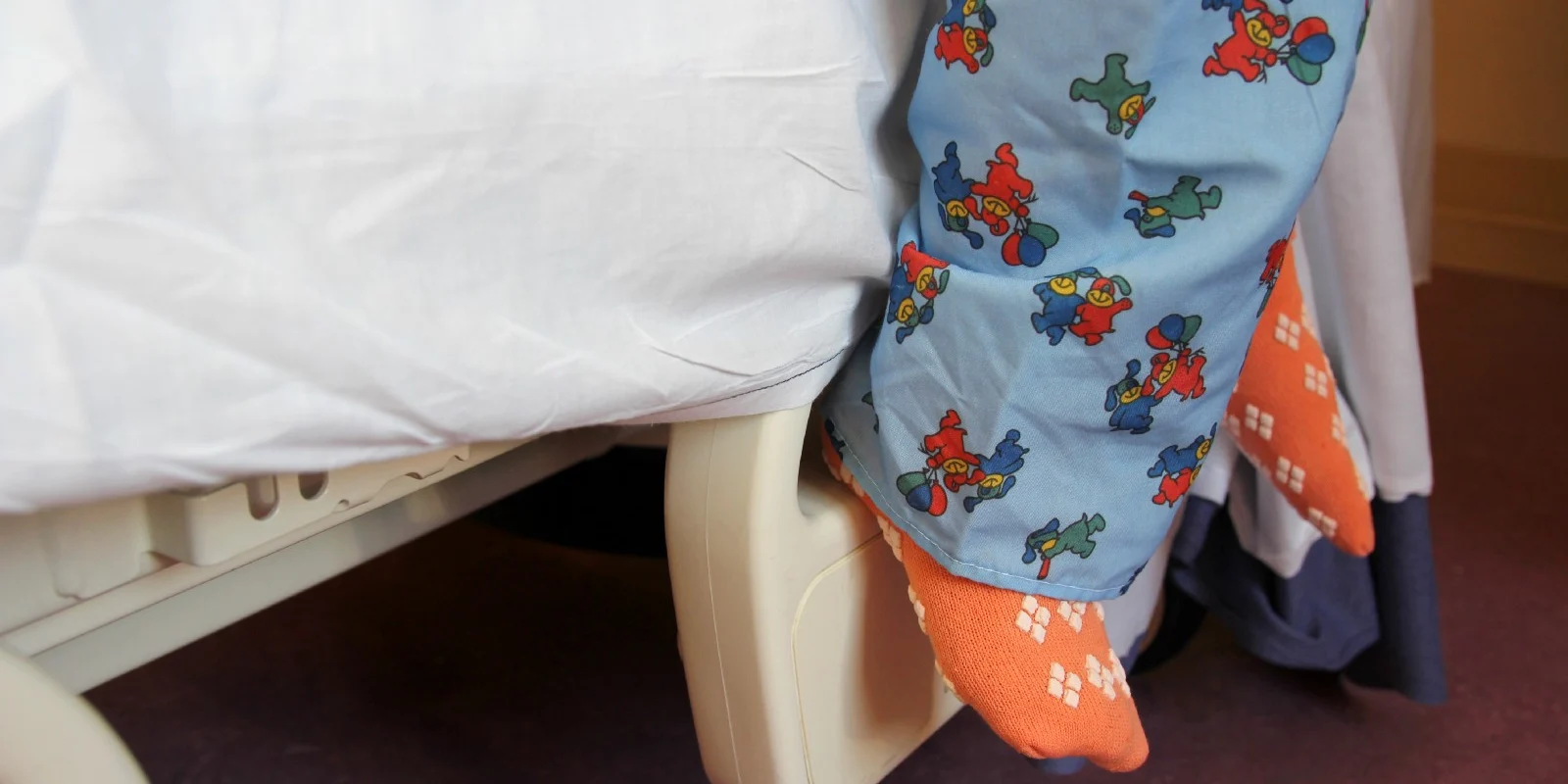
I knew pediatric residency would be hard. I guess you can never really exactly know what residency is going to be like until you’re in it. I knew it was going to be difficult, strenuous and rewarding all at once — and of course, the long hours and sleep deprivation — you try to mentally prepare yourself. What no one could have prepared me for was the pain, suffering and chronic conditions some of the kids endure. As a resident physician, you get immune to the cries when you give vaccines and take blood, put in an IV and even looking in their ears and throat. In a way, you get used to it, because these things are helping the child and to help them get better or prevent illness.
But the children we take care of on the floor or PICU, the chronic kids, the “frequent flyers” as we call them, with life-threatening illnesses, to watch that, watch them suffer and endure, that is the absolute hardest part of my job. And the amazing part of it is how much these children endure: their strength, their spirit is truly amazing.
My first morning as an intern, a PGY-1, I was assigned 4 patients. While they were on the floor, these would be my primary patients during the day. One of these patients was a seven-year-old boy. Sean* had a diagnosis of congenital HIV. While I didn’t train in the height of the AIDS crisis, I began my training when there were many children and adolescents who contracted HIV perinatally. Unfortunately, while research was being done on medications on how to reduce viral load and minimize the risks to the fetus and eventually, newborn infant, many of the patients I would care for during residency had already contracted the disease from their mother. As was the case with Sean, many of these children lost their mothers to the disease.
That day in June, Sean had already been admitted for a few weeks prior. His body was suffering from the effect of congenital HIV and was admitted for continuous care and medications. Each day, Sean needed his blood drawn to follow his blood counts. Since he was my patient, I was tasked with drawing his blood. To say I was terrified would be an understatement. While I drew some blood on children during my medical school clinical rotations, I had never drawn blood from an HIV+ patient. What if he moved? What if I got stuck by the needle? Well, I had no choice. I was the intern, he was my patient. After introducing myself and telling him that I would be drawing his blood, I remember double-gloving, as I had been taught, before tying the tourniquet on his arm. Sean didn’t move a muscle, probably since he was used to this daily needle prick. He was quiet, shy — reserved. As I took care of him on a daily basis, I didn’t learn too much about him. He didn’t talk much as the other patients I cared for, and sadly, during my long shifts, whether day or through the night, he rarely had any visitors. Unlike many of the other rooms where these was a parent at the bedside, day and night, Sean didn’t have anyone by his side. No one was there to read to him, watch TV with him, hold his hand during the procedures. Sadly, he almost seemed resigned — with his diagnosis, with the situation.
Sean was my first patient to have passed away, but unfortunately, he wouldn’t be my last. As all physicians know, part of our training is death, the death of our patients. I still get asked and t old how fellow physicians could not fathom practicing pediatrics and taking care of sick kids and watching them go through pain, and even worse, death. I can’t explain it, but as it doesn’t get any easier, you hope and pray that we are doing good for these children to make them healthier, that we are helping their families cope through a very traumatic and difficult time, hoping that we make a difference, and healing more than the ones we lose.
Natasha K. Sriraman, MD MPH FAAP FABM is an Associate Professor of Pediatrics at The Children’s Hospital of the King’s Daughters/Eastern Virginia Medical School. Her areas of advocacy and research include breastfeeding, postpartum depression, She is fluent in Spanish and Hindi and cherishes her work taking care of kids, moms and families. Away from the office she is a voracious reader, an active runner and enjoys yoga and kickboxing. All names have been changed for patient confidentiality.







